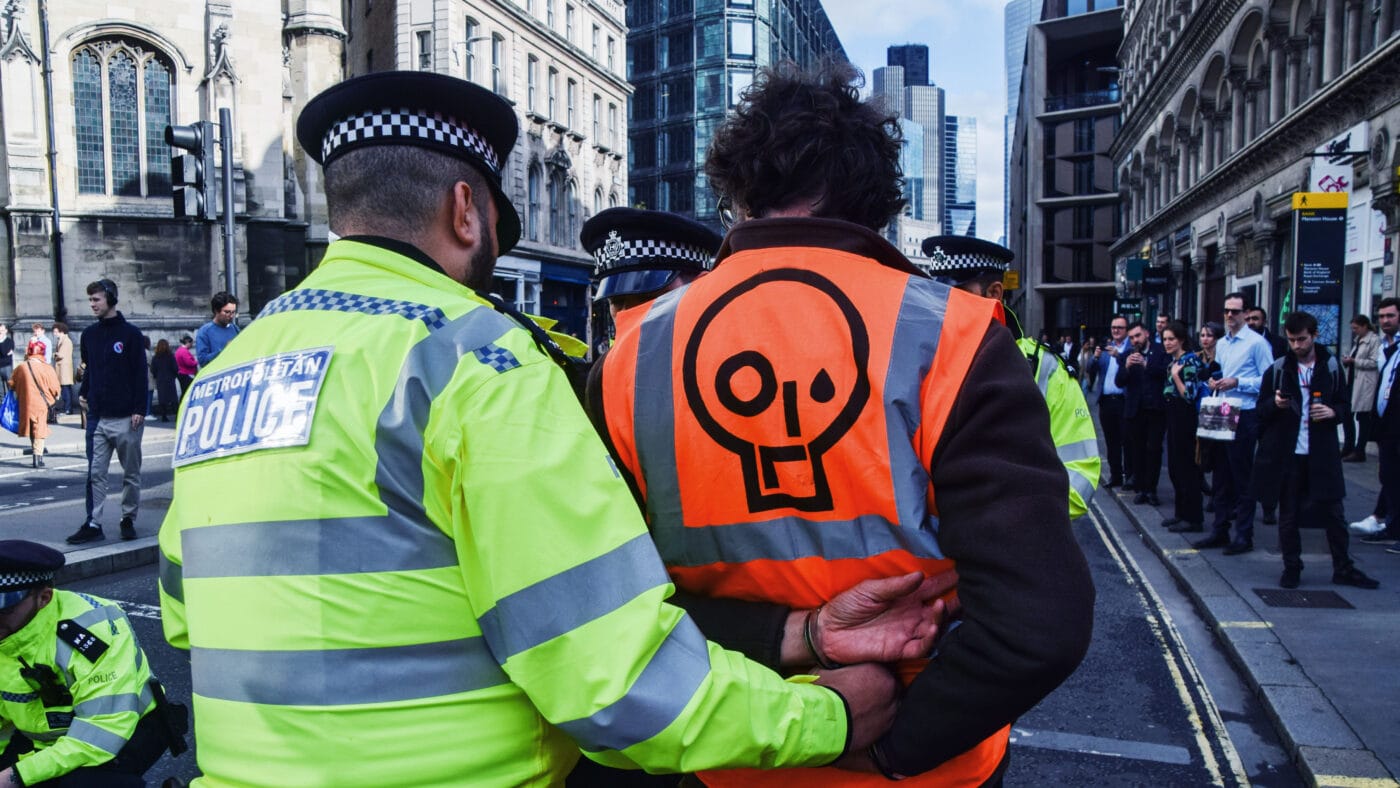‘You do not get to make up your own rules… And do you – do you – do you think you’re special? A contract means something. It’s the law, and it’s enforceable. Deal with it.’
This monologue, delivered by lawyer Kim Wexler in Breaking Bad prequel Better Call Saul, came to my mind when I read the remarks made by a judge when sentencing seven Just Stop Oil protestors last week.
The judge stated that the protestors were ‘good people with admirable aims’. He also commented that they were ‘a pleasure throughout to deal with’, that it was ‘unarguable… that we are facing a climate crisis’ and that he was moved by their explanations of their actions.
He overlooked the deep anger felt by countless people up and down the country at the selfish campaigning tactics of Just Stop Oil and their ilk. These seven criminals in particular had obstructed deliveries from an Esso fuel terminal in Birmingham. These protests disrupt our busy lives, expose us to the self-righteous justifications of these histrionic doom-mongers, and highlight the bizarre enfeeblement of the police to deal with civil disruption.
The conviction and sentencing of these criminals should have been a cause for quiet satisfaction, but instead the judge’s remarks have added to the frustration. As Priti Patel put it on Twitter, it showed ‘once again the vocal, disruptive, law breaking minority ride roughshod over Britain’s silent, law abiding majority’ ( she added an exploding head emoji for good measure).
Rage and incredulity are an understandable response to individuals who believe they are above the law – whether expressed by the fictional Kim Wexler or the former Home Secretary. But there is another truth in Better Call Saul too. The tension in that show, and its predecessor Breaking Bad, between what is right and wrong according to our conscience and according to law, is one of the things that makes both so gripping to watch. In the latter, mild-mannered chemistry teacher Walter White turns to drug dealing to pay for cancer treatment, while in the former, lawyers Wexler and Jimmy McGill (who will later turn into the titular Saul Goodman) continually bend the rules on behalf of themselves and their clients.
While this makes for compelling drama, in the real world we can’t decide which laws we will and won’t abide by. Even in Breaking Bad and Better Call Saul, the characters’ crimes catch up with them in the end.
In sentencing the Just Stop Oil Protestors, District Judge Graham Wilkinson appeared to acknowledge this, saying, ‘this is not a court of morals, it is a court of law, if I allow my own moral compass or political beliefs to influence my decisions and ignore the law where it is convenient to me to do so then the court becomes one where the rule of law no longer applies’. But at the same time he made it pretty clear in which direction his own moral compass pointed, by telling the protestors ‘it is abundantly clear that you are all good people’ and that ‘no one can criticise your motivations’.
Just Stop Oil understandably leaped on these comments, publishing a gushing press release with the extraordinary claim that Wilkinson had said ‘you should feel guilty for nothing’, while announcing that seven people had been found guilty by that same judge of crimes under the laws of England and Wales. (The Judicial Office described their account as ‘misleading’).
What’s clear, however, is that the judge decided that the motives of these seven activists were substantial mitigation for their crimes, and handed out light sentences: 12-months conditional discharge each and fines of up to £500. And in the process of being charged, found guilty and sentenced, they were given a platform to spew out their perceived moral superiority.
The whole circus has put the court in a contradictory position. On the one hand, it has been vocal in its unflinching support for equality of all before the law. And yet on the other it has been unable to resist the temptation to indulge in moral grandstanding. Just like Kim Wexler and Walter White, the judge is trying to have it both ways.
Spoiler alert: this doesn’t work out well for either of them. We will see how it turns out for the judiciary.
Click here to subscribe to our daily briefing – the best pieces from CapX and across the web.
CapX depends on the generosity of its readers. If you value what we do, please consider making a donation.


